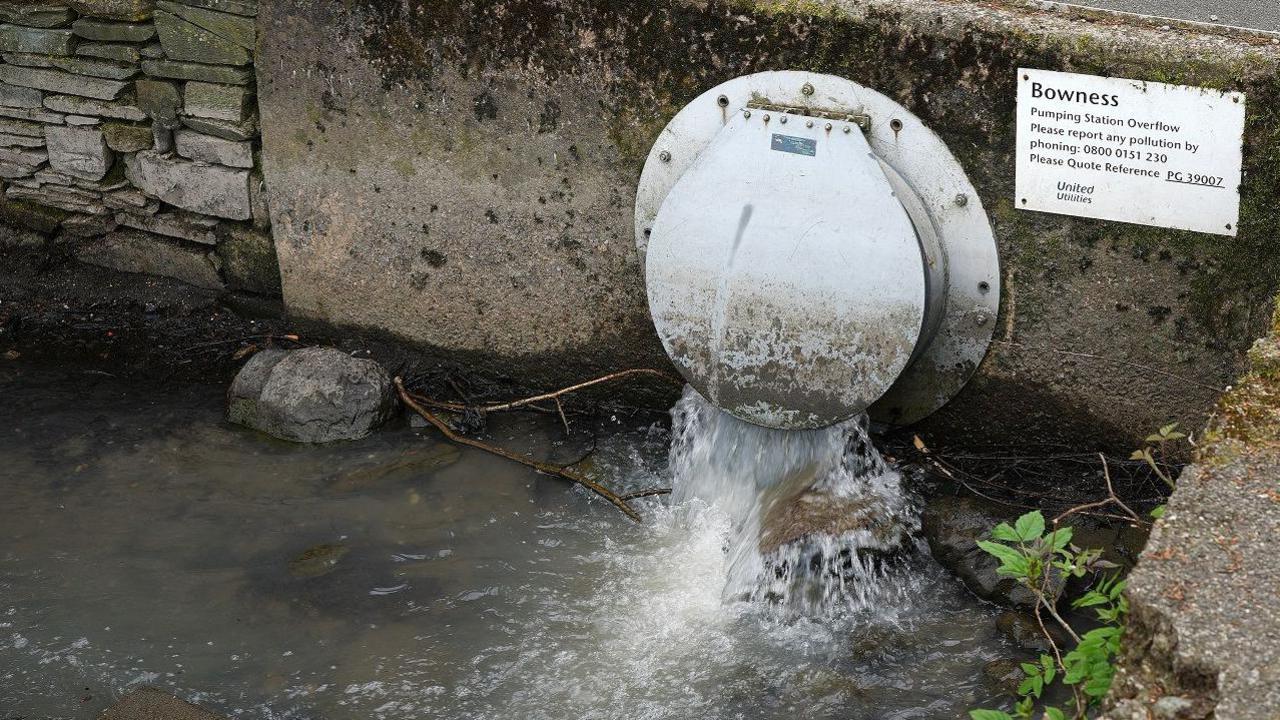Welsh Water dumped sewage in conservation area
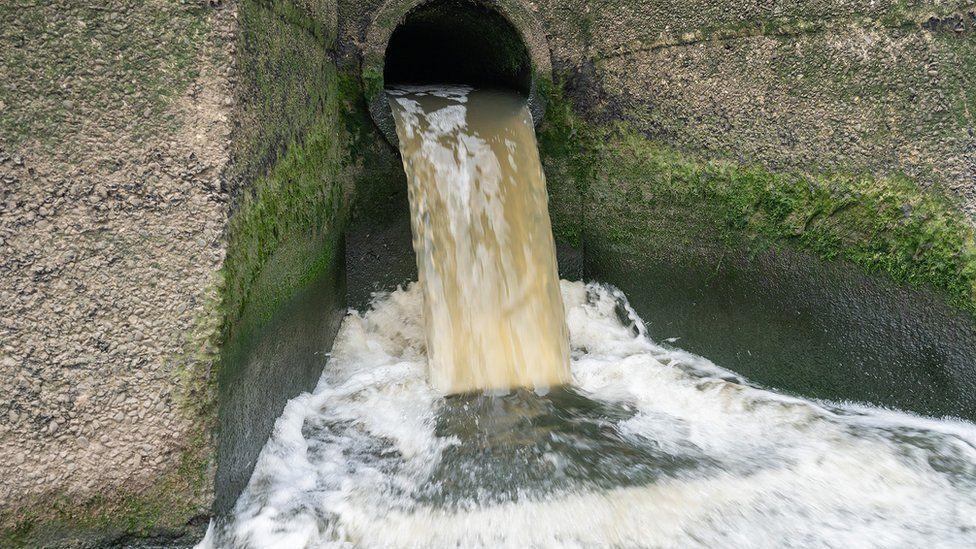
Campaigners said the equivalent of 17 tankers of waste a day was dumped into a Pembrokeshire river (file photo)
- Published
Tens of thousands of cubic metres of untreated waste water, including sewage, was dumped in a river in 2023, campaigners have said.
The Cleddau Project said Welsh Water data showed pumps at Picton in Haverfordwest, Pembrokeshire, were running at 80% capacity from July 2022 to February 2024.
That meant 56,000 cubic metres - the equivalent of 17 tankers a day - which should have been going to a sewage treatment plant, was instead going into special conservation area the Western Cleddau.
Welsh Water apologised and said its Picton pumping station had been upgraded and spills cut.
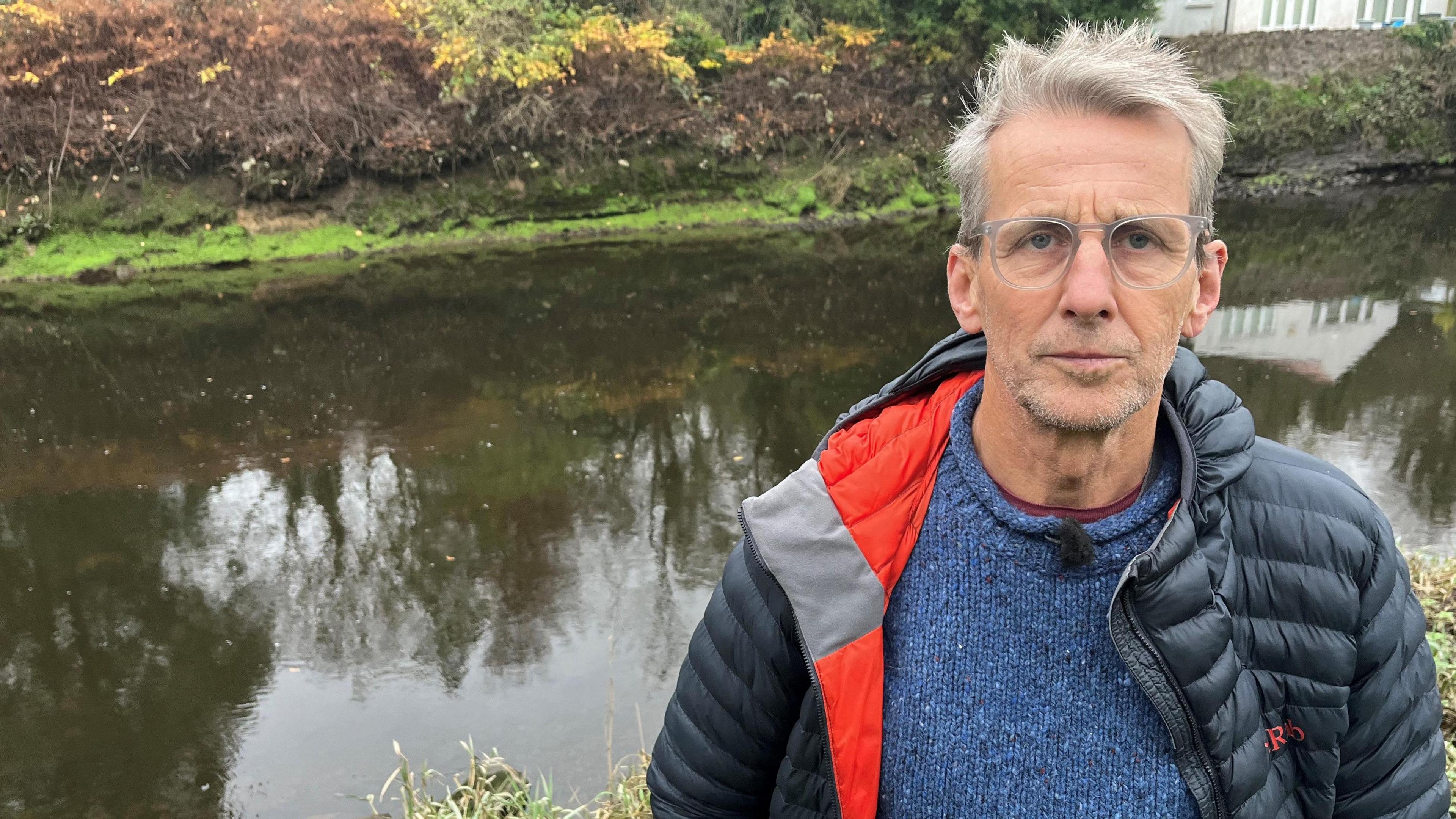
Ric Cooper said a pipe was "spilling what looked like raw sewage more often than we'd ever seen in the past"
But it admitted there could be problems at other sites across Wales.
The Cleddau Project's Ric Cooper said campaigners investigated because an overflow pipe at Picton playing fields appeared to be spilling more raw sewage than usual.
Welsh Water risks prosecution, says damning report
- Published23 July 2024
Wales' water pollution spikes, despite £483m spend
- Published7 June 2024
River site first in Wales to get swim water status
- Published20 June 2024
The group asked Welsh Water for pump performance data from the nearby pumping station.
They are, according to Mr Cooper, supposed to pump at 120 litres a second but had only been operating at "95 or 96".
"That means 20% of what should have gone for treatment was going straight into the river," he said.
"We calculated over 12 months, and it averages out as 17 tankers a day emptying into this river.
"You can imagine the outcry if on 17 occasions, a tanker pulled up and let it all go."
Welsh Water data showed the overflow pipe at Picton in 2023 discharged 133 times for almost 647 hours.
The Cleddau Project said it found high levels of ammonia in the water and that tests showed sewage was being discharged at levels toxic to fish.
The group said it was reported to Natural Resources Wales (NRW) several times, which investigated in June 2023, almost a year later.
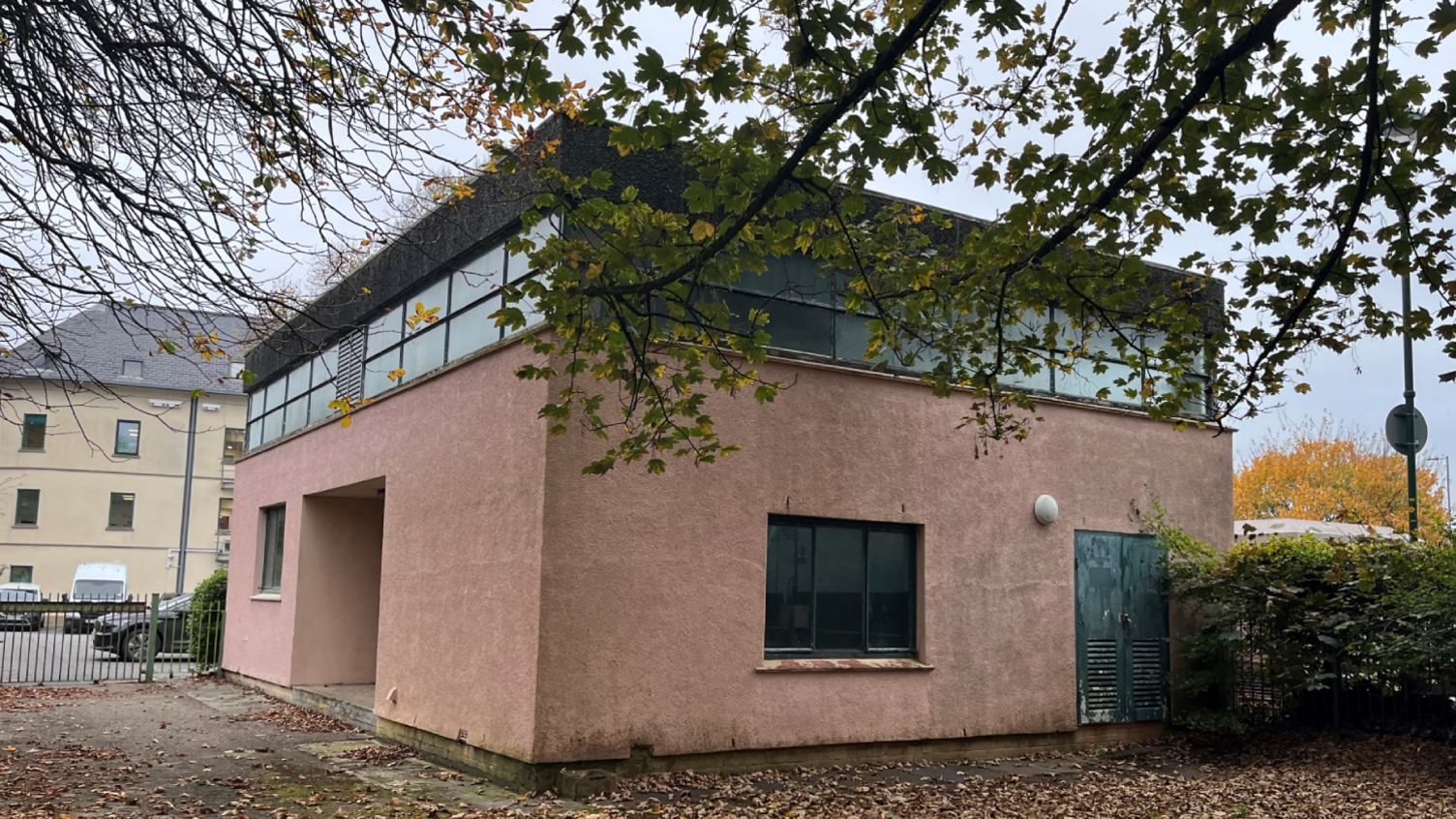
The Cleddau Project said pumps at Picton pumping station, in Haverfordwest, were operating at just 80% capacity for 18 months
The Cleddau Project said it took another nine months before the pumps were up to speed.
Another campaigner, Simon Walters, said the spills would affect sewin and salmon movements.
He added that E. coli levels were "way" above that permitted for safe bathing.
He said: "We used to swim in here as kids. I wouldn't let my dog swim in here now."
NRW and Welsh Water bosses, he believed, needed to resolve the matter.
Mid and South Pembrokeshire MP Henry Tufnell, who met the Cleddau Project members, Welsh Water and NRW last week, called the pollution "not acceptable".
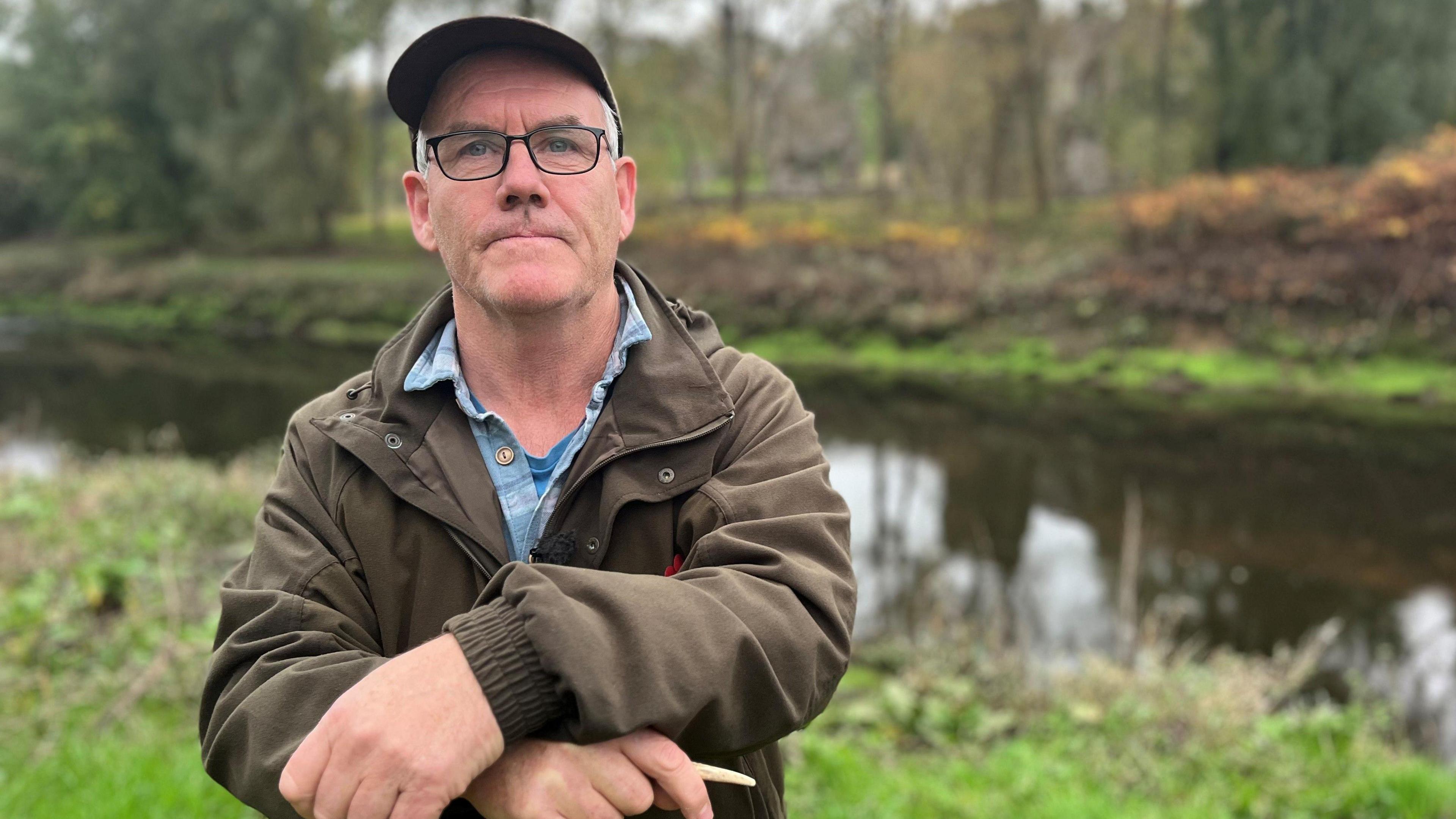
Simon Walters said the area was a special area of conservation and should be protected
NRW needed more resources, he believed, as it was investigating only 20% of alleged breaches reported.
He said the UK government was taking "definitive action" on tackling pollution with a bill which would give increased powers to regulators to tackle polluting companies.
In July, Ofwat confirmed it had served formal notices and opened an enforcement case against Welsh Water and three other companies into how they managed waste water treatment works and networks.
Welsh Water "apologised" for any damage to the Western Cleddau.
Waste water chief Steve Wilson said the equipment monitor flow on the Picton overflow pipe had been fitted before the deadline of regulator NRW.
"To upgrade that pumping station, we had to install new pumps and a new panel, which actually took 26 weeks to be built," he added.
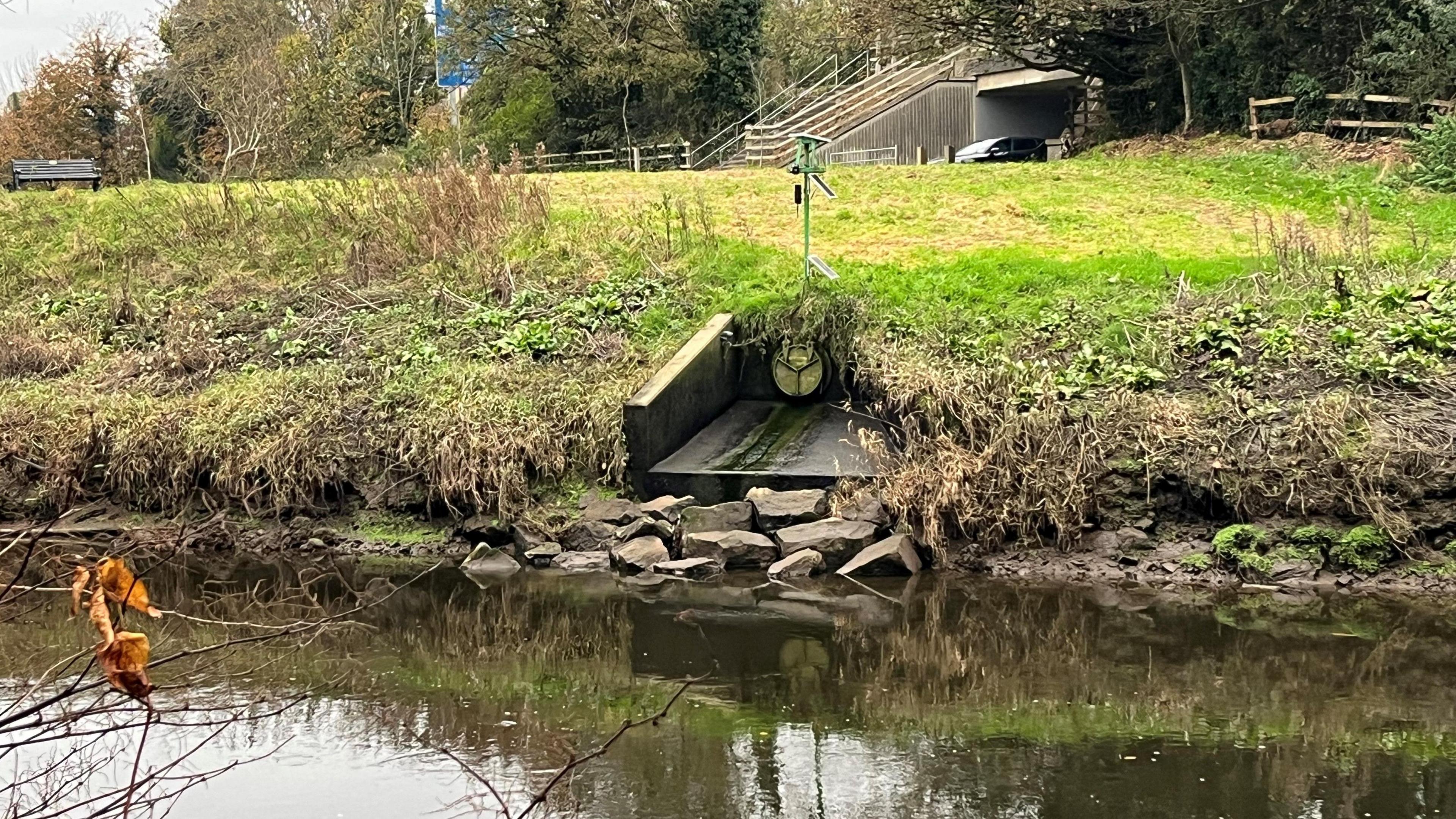
The Cleddau Project said data showed a storm overflow pipe at Picton playing fields discharged 133 times in 2023
It was now operating correctly, he said.
Mr Wilson said the company was upgrading sites in Wales as fast as possible to improve water quality.
The company, he said, planned to spend £4bn between 2025 and 2030, with £100m on improvement and maintenance in Pembrokeshire, subject to Ofwat approval.
NRW confirmed it was made aware of a problem in June 2023, and was told by Welsh Water new pumps would be installed by 31 October 2023.
It said the deadline was missed and Welsh Water were given a formal warning.
The work to repair the pumps was completed in February 2024, it said.
NRW said the pumping station was "subject to a formal legal investigation for another matter".
- Published8 October 2024
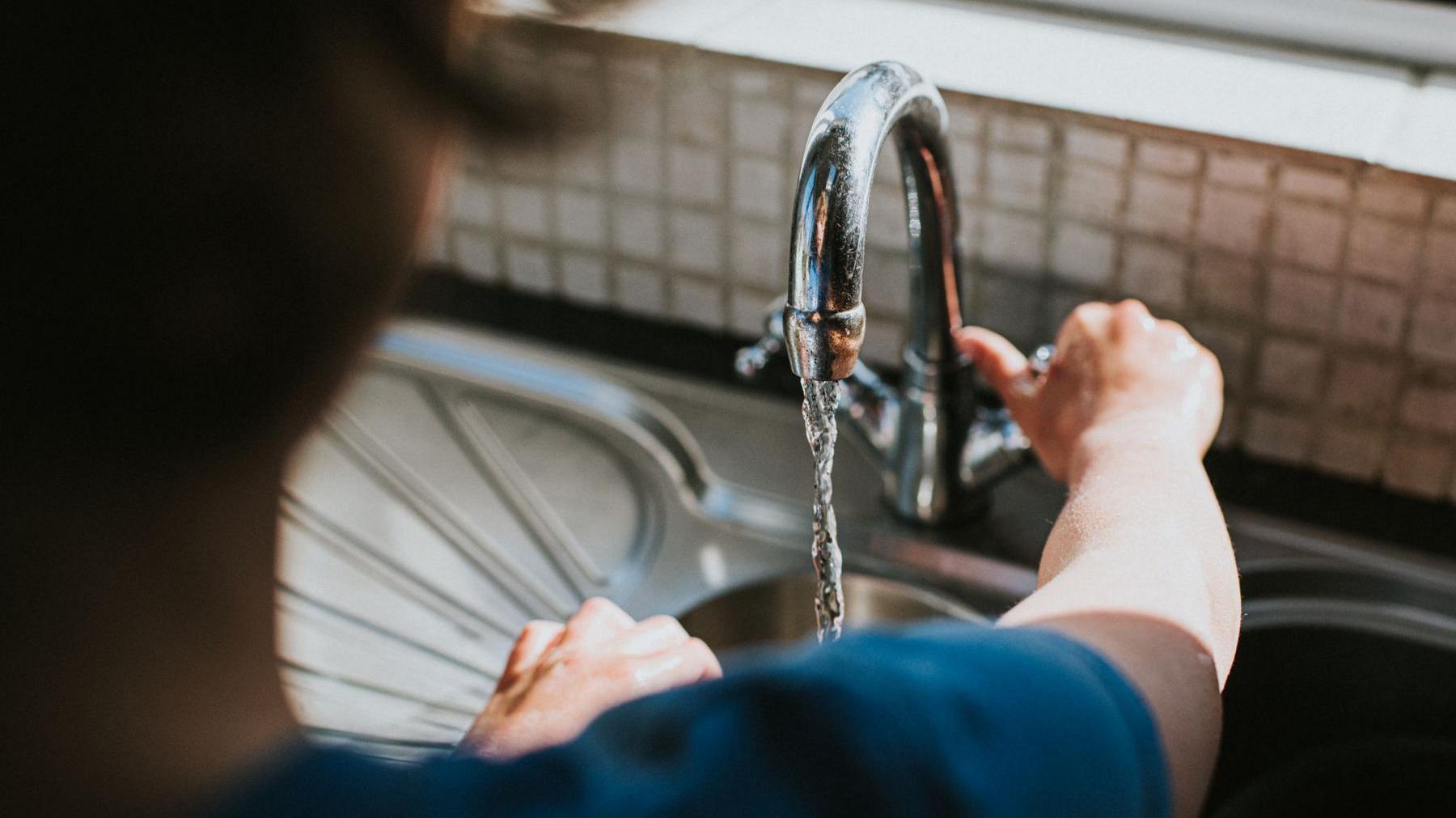
- Published8 October 2024
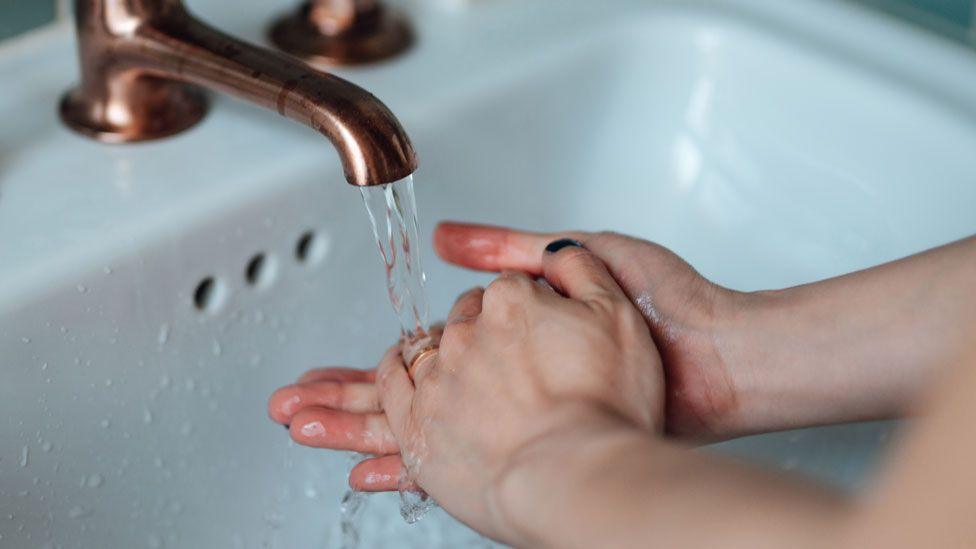
- Published16 July 2024
